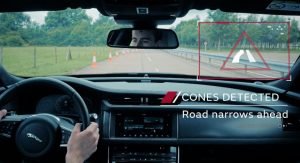In the coming hours, the U.S. government will issue federal policy regarding self-driving vehicles, dubbed the Federal Automated Vehicles Policy.
Up until this point, regulations on autonomous vehicles has been handled by state regulators but this new federal policy will provide nationwide guidance and is set to better monitor the introduction of self-driving technologies.
Included in the policy will be a 15-point ‘Safety Assessment’ which automakers will have to sign and submit before putting an autonomous vehicle on U.S. streets. This assessment will determine how a vehicle detects objects in the road, crashworthiness, a detailed explanation of the testing and validation methods used in developing the software as well as how important driving infotainment is communicated to drivers, among other things.
Under the new policy, states across the U.S. will be able to set their own policies regarding things like law and regulation enforcement, testing permissions and licensing. The government meanwhile will be responsible for public education about autonomous technology, recalls, safety standards and compliance.
Alongside the sweeping changes, the National Highway Traffic Safety Administration (NHTSA) will also make changes on how it deals with autonomous vehicle recalls. Although it hasn’t been confirmed yet, the NHTSA may be able to recall semi-autonomous vehicles which don’t take into account a potentially distracted or inattentive driver who could fail to take control of the vehicle in an emergency.









